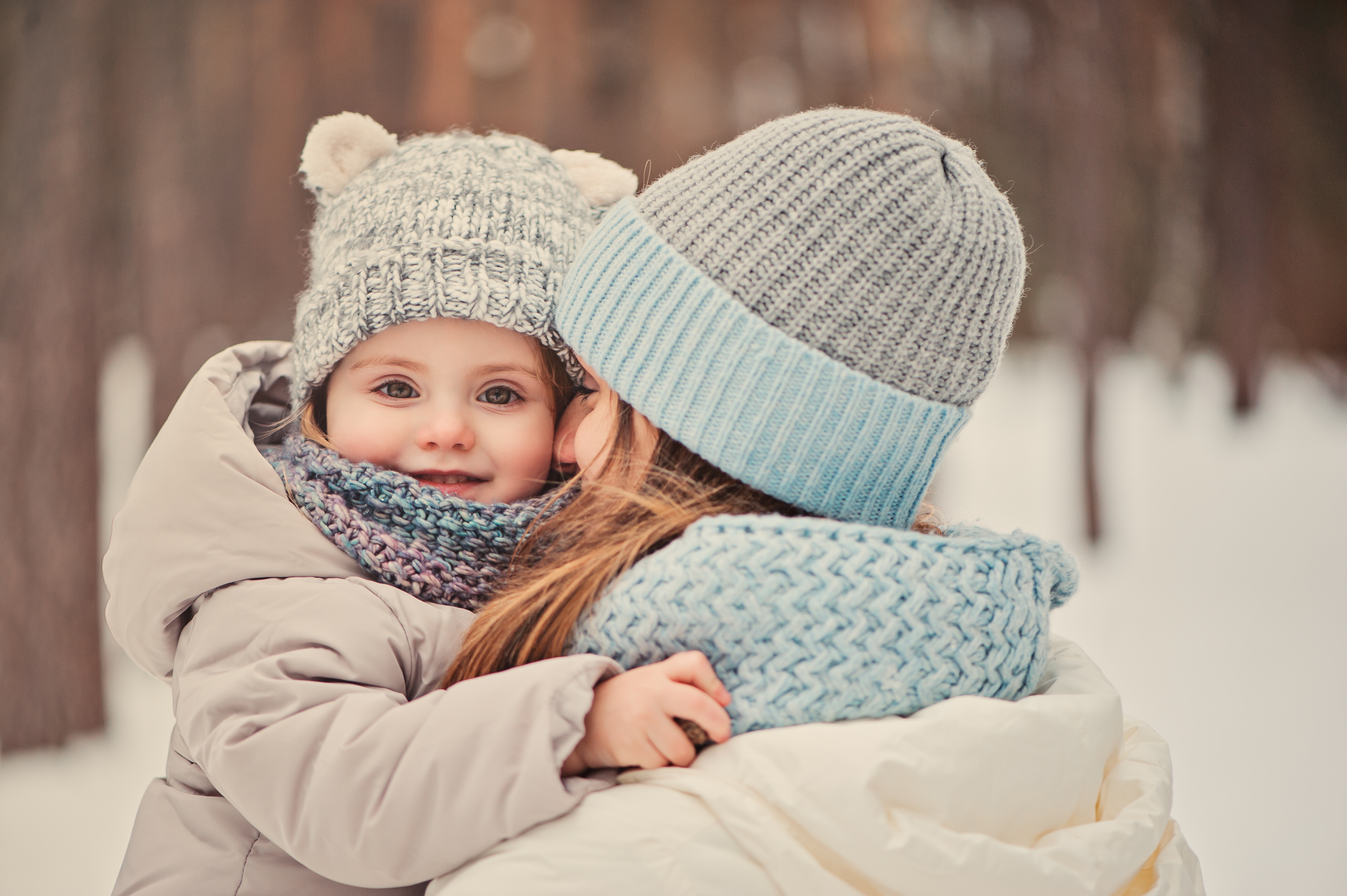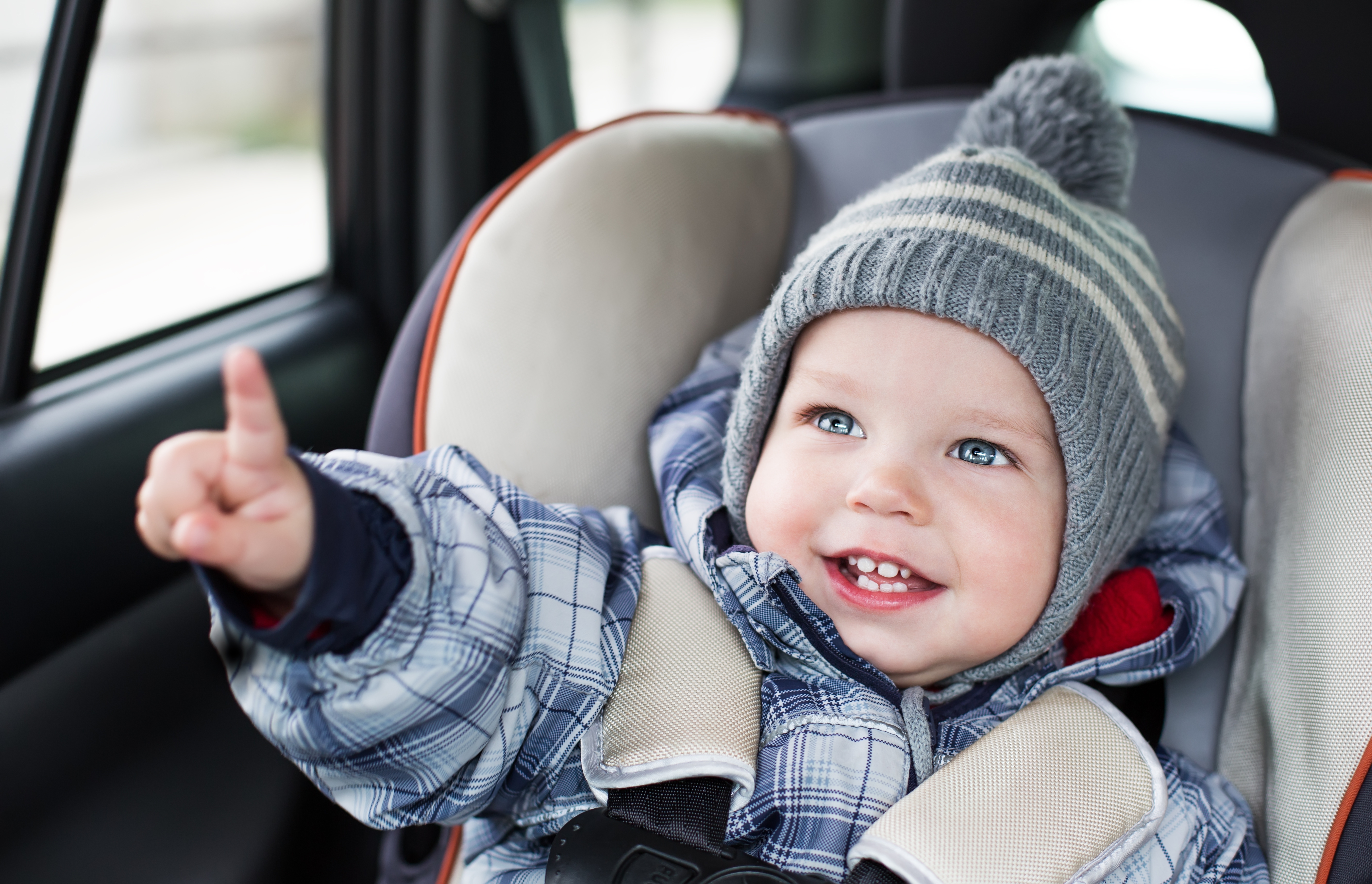
After entering December, the weather is getting colder and colder, and mothers have broken their hearts for Eva’s [warm keeping problem].
At this time, different kinds of [voices] make mothers tangled up again…
Neighbors always say that my baby wears less and should wear more…
The old man said there was too little cover for the children and the hands were not hot…
My husband said that it is easy to catch a cold when going out in cold weather, and it is safer for her to stay at home…
It is understandable that children are afraid of catching cold and getting sick, but sometimes parents are easy to do bad things with good intentions.
Today, Clove’s mother helped everyone sum up a few things. Let’s have a look at what we should not do to our children even if it is cold in winter.
Don’t wear too much cover for your baby.
Many parents are afraid of their children’s cold and wrap their children up like a big zongzi in winter. They wish to see the baby’s palms perspiring before they are sure that the baby is warm.
When sleeping, too, I covered her with a big quilt for fear that she would freeze.
However, wearing too much and covering too thick is a potential safety hazard, especially for small babies, which is easy to cause heat-covering syndrome.
On February 15, 2007, Duoduo, a 4-month-old female baby in Yiyang, Hunan Province, was unable to recover from hypoxia, high fever, coma and lack of breathing due to too thick a cover with adults.
Wu Heat Syndrome is more common in infants under 1 year old, especially newborns. It is a common emergency in winter caused by excessive warmth preservation and over-stuffy for too long. The mortality rate is as high as 18% to 19%.
Some children have been rescued, but they will also suffer from brain injury, central paralysis and other diseases.
Parents should not blindly wear more covers for their children, just keep warm moderately.

Do not use electric hot water bags to keep children warm.
Since there is no indoor heating in southern cities, people will give their children various [warm-keeping artifacts] to keep warm, and charging hot water bags have also become hot sellers.
When choosing hot water bags, parents must keep their eyes open and do not choose electrode hot water bags!
As early as November 2010, the state has explicitly banned the production and sale of electrode-type hot water bags, because the electrodes are in direct contact with liquid and are prone to short circuit or explosion.
[News of the Explosion]
To judge whether the electrode hot water bag can do this: gently pinch it with your hand to distinguish it. If there is an obvious arc coil device inside, it is the electric heating wire type hot water bag. If you pinch two hard cylinders, it is the electrode type hot water bag.
When using other hot water bags, attention should also be paid to prevent cryogenic burns.
Babies seldom turn over, it is difficult to ask for help in time when they encounter discomfort, and it is easy to burn locally. When using hot water bags, the temperature should not be too high and the time should not be too long.
Don’t keep your baby warm with an electric blanket for a long time.
When it comes to [thermal artifact], besides hot water bags, electric blankets are often used.
In a cold city, when the electric blanket is opened, it is warm inside and feels extremely happy when entering the quilt. “
But when the electric blanket is used by children again, one must also have multiple minds:
1. Do not choose electric blankets with poor quality (try to buy expensive ones). Leakage will easily occur after children urinate, which will easily lead to short circuit and accidents.
2. Don’t use electric blankets for children, especially babies, for a long time.
Long-term high temperature will cause the baby to sweat a lot or lose a lot of water during sleep. The baby is easy to dehydrate and cause diseases.
Don’t let the baby wear too thick to sit in the safety seat.
Many parents have the awareness to let their children sit in safety seats, which is a good thing, but it is really unsafe for children to wear too thick safety seats in winter.
A recent experimental report by foreign media TODAY has caused a lot of discussion (Car seat alert: The winter coat mistake that can endanger your child)
Place the child dummy wearing a thick coat on the safety seat, fasten the seat belt in the correct way, and collide at a speed of 30 miles per hour (almost 48 kilometers per hour). As a result, the child dummy slipped out of the coat and flew out.
Thick clothes are usually fluffy, Sometimes you think that the child is fixed by the safety belt, but in fact it cannot be effectively fixed. The surface of most down jackets is relatively smooth. If you really encounter accidental impact, you cannot effectively fix the child. The child is like a shelled egg in a bowl [flying out], causing contusion to cervical vertebrae and head, which can even cause death.
However, ADAC, Germany’s largest transportation association, has conducted relevant experiments. The results show that when people wear thick winter clothes and wear seat belts, both adults and children, the transverse seat belts will be tied into the abdomen during impact. In severe cases, it may even cause internal organs such as liver and spleen to be injured and even cause internal bleeding.
Therefore, if the child travels in winter, it is recommended to take off the coat that is too thick and fix it in the safety seat. If you are afraid that the baby is too cold, it is also possible to turn on the heating in the car in advance or prepare a warm blanket for the baby.
Don’t leave your child indoors for a long time.
When the weather is cold, many adults don’t want their children to play outdoors, fearing that it will make their children sick with cold.
Therefore, in winter, children also become [family members], and the activity places are often either at home, indoor amusement parks or lively shopping malls.
However, being in an indoor environment for a long time is not beneficial or even harmful to children’s health.
If you don’t go out for a long time at home, your children won’t be able to move, your physical consumption will be limited, your appetite will also decline, and your physique will also be affected.
Often take children to shopping malls and amusement parks to play, the space is closed, the air is not circulating, not to mention the crowd is still dense, in the flu outbreak season, children are easier to [recruit].
In fact, children are not so afraid of cold. Children are naturally fond of moving. As long as there is no smog or strong wind and snow outside, it is recommended to take children out for activities, breathe fresh air and exercise cold tolerance, which can improve children’s immunity.
